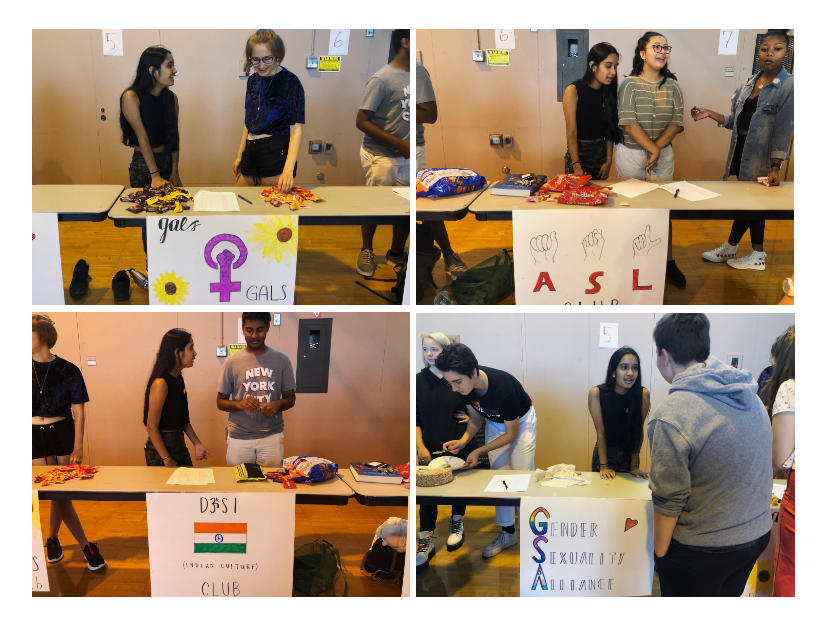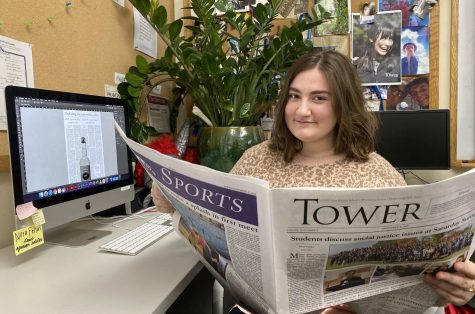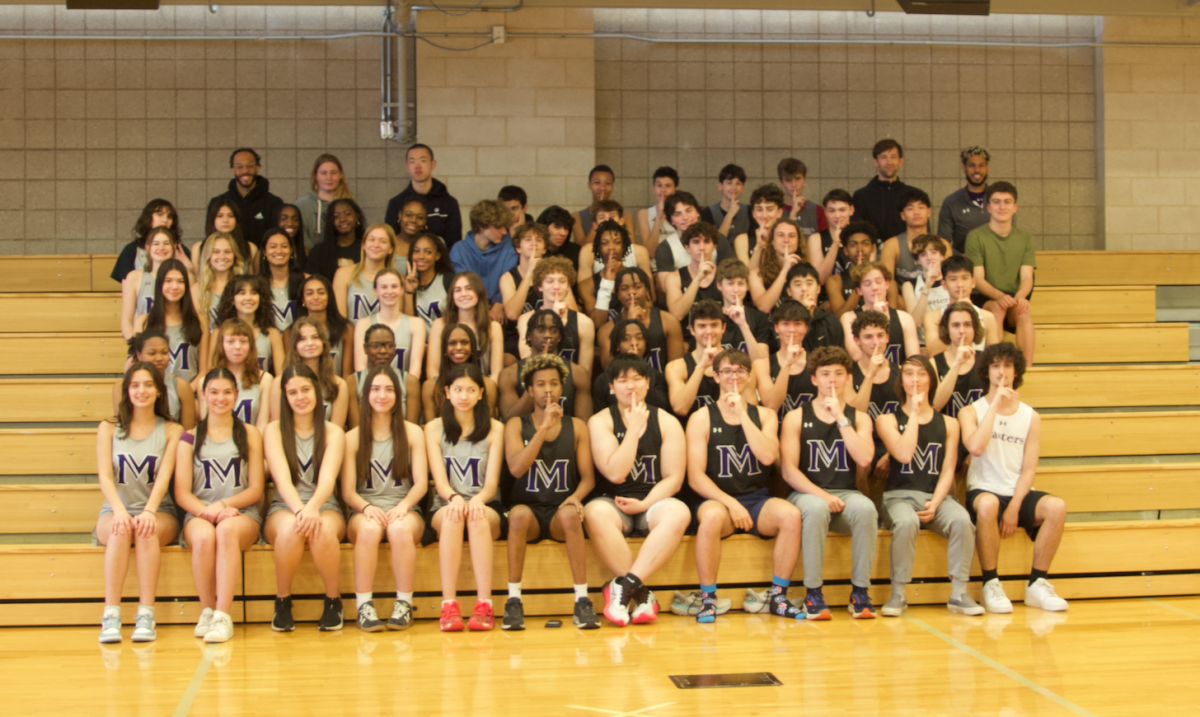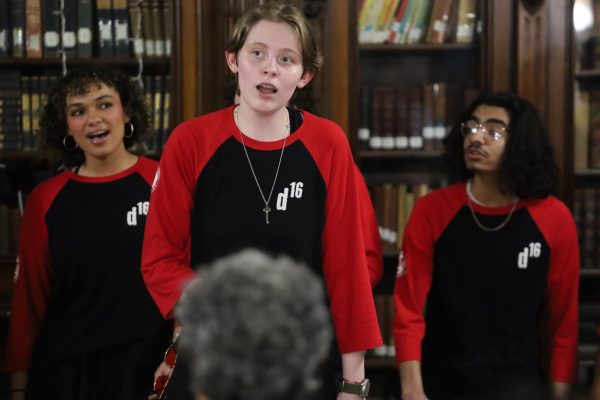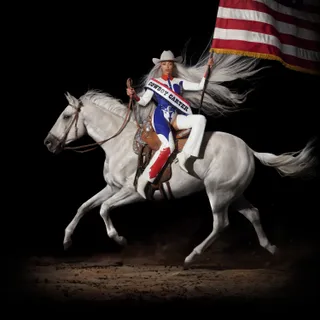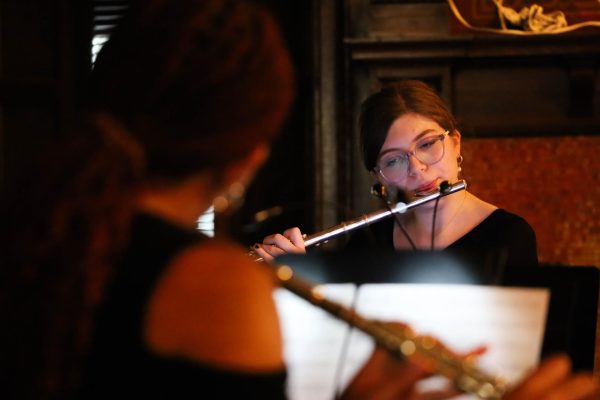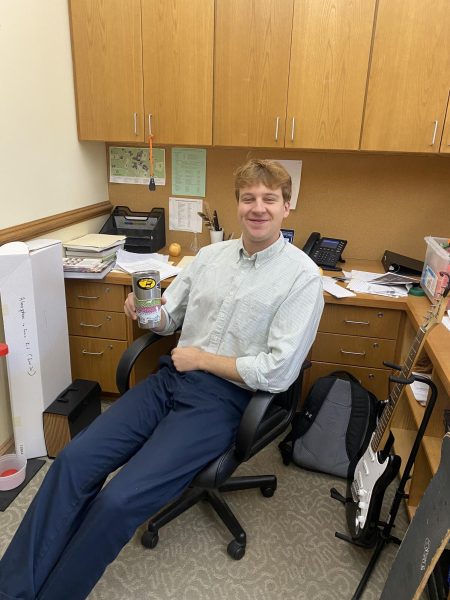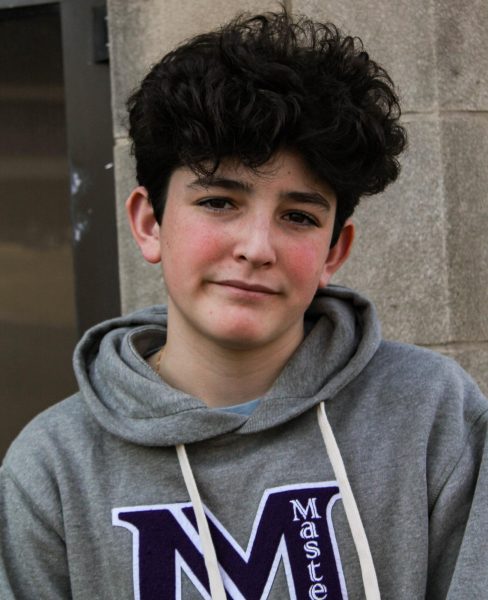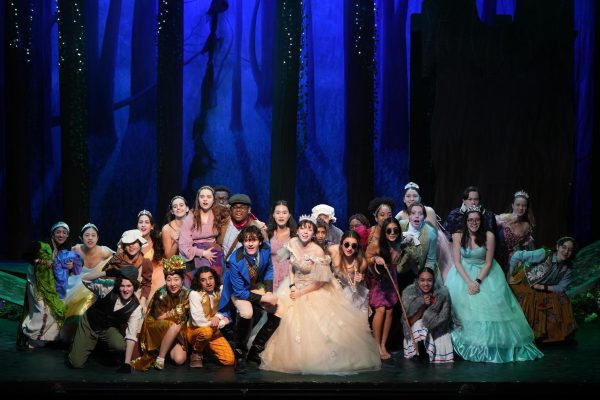New schedule assigns club leaders conflicting meeting times
Sachi Singh ’21 was in charge of running four separate club tables during the annual club fair in mid-September. Attending to her multiple leadership roles has been made more difficult by the new schedule which assigns clubs meeting times with an abundance of leadership overlap.
November 1, 2019
Junior Sachi Singh is president of four clubs: ASL (the American Sign Language club), Desi (the Indian culture club), GALs (the feminist club), and GSA (the Gender and Sexuality Alliance). While a commitment to four clubs has always required organization, it has become increasingly difficult for club leaders and members to manage their time because of the new schedule this year at Masters.
Previously, club leaders decided on meeting times and options included morning break, “flex-lunch” and after school. Thus, those who were involved in multiple clubs had the ability to avoid scheduling conflicts.
There are currently over 53 active clubs at Masters, and, apart from a few exceptions, now clubs must meet during one of two available times: Masters Hour on either Day 4 or Day 8. The new schedule has imposed this organizational limitation.
Interim Dean of Students Jeff Carnevale said that the administration had built club time into the school day because it supports clubs. “We place value on things by giving them time. Student led clubs are the heart of our student experience,” Carnevale said.
He added that scheduling was carefully thought through. “When we were placing clubs, we looked at our club lists and tried to place them so that there weren’t too many conflicts in terms of club presidents,” he said.
Cinema Society (the film club) and Salty Dogs (the sea shanty club) President and Phoenix (the honorary drama society) member Timothy Boroweic said that because Cinema Society and Phoenix were allotted the same meeting time, students involved in theatre, who would likely enjoy both clubs, would also have to choose.
“When you only have two club times, it’s impossible to avoid conflicts,” Boroweic said.
Furthermore, the club placement list is alphabetical by the club’s name: clubs whose names start with the letters A-H meet on Day 4, and those that start with the letters I-Z meet on Day 8.
Because their names begin with letters between A-H, all four of Singh’s clubs were initially scheduled to meet on Day 4. Carnevale said that for Singh and club presidents in similar situations, the administration would allow them to change their club time. She has since been allowed to move only GSA, to Day 8, but was not permitted to move Desi because of the many clubs that meet on Day 8. She still has three clubs meetings on Day 4.
Singh added that most identity-based clubs are scheduled for the same day, which may force students to choose between their identities; inhibiting intersectionality. “A lot of people who would want to go to GALs, would want to go to GSA,” Singh said.
Rosemary Termini, a Phoenix and Gold Key member, said she didn’t attend club fair because the schedule wouldn’t allow her to join new clubs.
“The mission of Masters is to be able to try things and when you’re limited to two things you’ve already committed to, it’s impossible to branch out,” Termini said.




